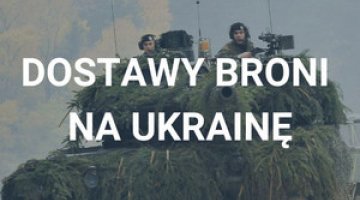Relations between Russia and NATO before and after the 11th of September
1. A crucial issue for Russia has always been such a shaping of the European security architecture which would guarantee the possibility of its participation in decision-making in issues referring to European security, especially crisis management. Moscow, still perceiving itself as a great world power, even in times when its ambitions are gradually being limited, would like to solve the problem of security architecture by creating a kind of directorate, which would manage European security and would consist of the main European powers, the USA, and Russia. It seems that after the attempts to base this architecture on the OSCE model fell through, Russia has set its hopes on co-operation with the EU and above all with NATO, the key dominator in the European security problem. It has been Moscow's interest to make NATO gradually evolve in the direction of a collective security system.
2. The issue of NATO enlargement, though vital, is of secondary importance in comparison to the above. NATO enlargement was a crucial political problem for Russia, since in spite of all efforts undertaken, the country was not able to acquire the role of the "co-manager" of European security. Therefore, Moscow tried to block or at least significantly delay the process of NATO enlargement as well as to limit its geographical area and military consequences. Nevertheless, Russia has come to terms with the inevitability of this process and currently does not work against it as determinedly as before. This change is also related to the process of the gradual shrinking and weakening of the zone Russia perceives as its area of influence. In the future, Russia's attitude towards NATO's enlargement may positively change on condition that its aims concerning the architecture of security will be achieved.
3. Russia treated instrumentally such issues as the narrowing of relations with NATO and the development of co-operation with the Organisation. Moscow regarded these concerns as the way to discourage NATO from enlarging and presented them as an alternative to the enlargement process. Moscow's real interest in co-operation with NATO was limited, though. This state of affairs was partly due to the anti-Americanism of Russian foreign policy and partly due to its being unprepared for such co-operation. Differences in approaching the new form of co-operation by Russia and by NATO may hinder its accomplishment. NATO is concentrated on attempts to involve Russia in particular co-operation in selected areas, but it seems that Moscow is not prepared mentally and financially for such co-operation. What is crucial for Russia is setting up institutions and making strategic decisions.
4. The future of Russia-NATO co-operation depends more on real and deep internal transformations taking place in Russia than on NATO's attitude towards Moscow. The above changes would make Russia the country capable of constructive co-operation with NATO based on common values, interests and standards.




